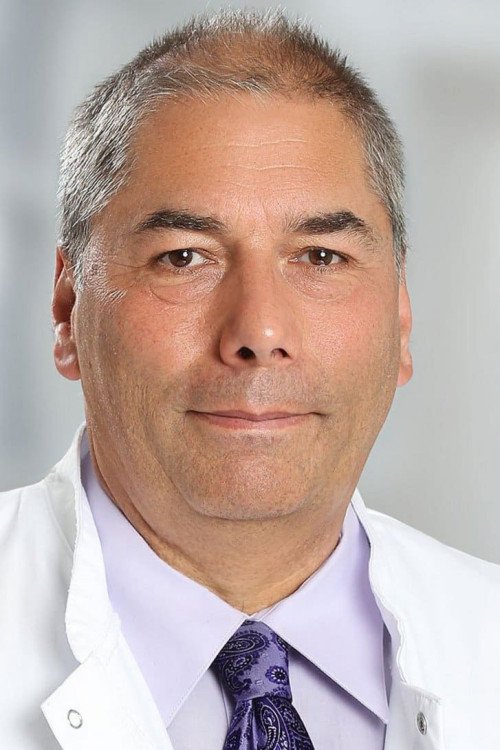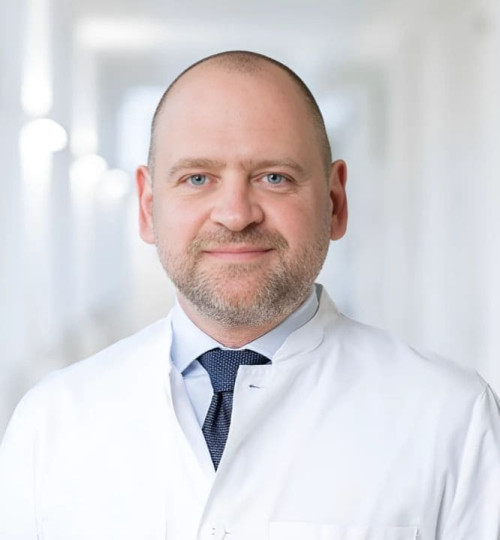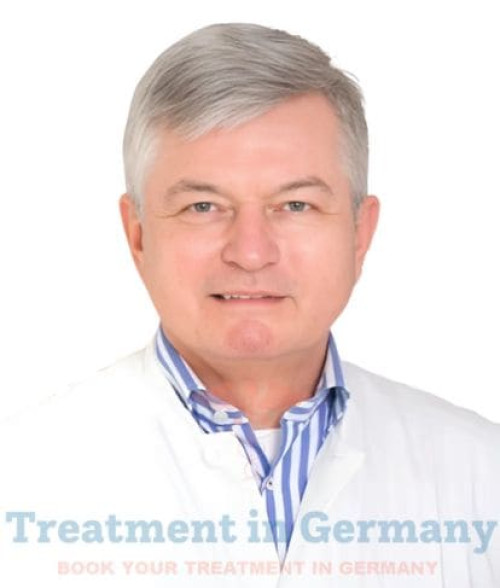The Department of Oncology is a specialist discipline of medicine that focuses on cancer diagnosis, treatment, and management. Oncology is a complicated and interdisciplinary specialty that brings together a variety of medical specializations to give complete treatment to cancer patients. This department is critical to the battle against cancer, delivering cutting-edge therapies, pioneering research, and compassionate care to patients and their families.
Oncology is the medical field that studies the prevention, diagnosis, and treatment of cancer. The Department of Oncology is manned by highly qualified experts such as medical oncologists, radiation oncologists, surgical oncologists, hematologists, pathologists, radiologists, oncology nurses, and support personnel.
This interdisciplinary team collaborates to create personalized treatment regimens for each patient, ensuring that therapy is targeted to the exact kind of cancer and the patient's unique requirements.
Scope of Oncology
The Department of Oncology provides a variety of services, including:
1) Cancer Prevention and Screening:
Risk Assessment: Identifying individual risk factors for cancer, such as genetic predisposition, lifestyle decisions, and environmental exposure. Patients with a greater risk of cancer may be thoroughly monitored via frequent check-ups and preventative actions.
Screening Programs: Putting in place screening programs for early cancer detection, such as mammography for breast cancer, colonoscopy for colorectal cancer, and Pap smears for cervical cancer. Early identification greatly enhances the likelihood of effective therapy.
Vaccination: Giving immunizations, such as the HPV vaccine, to lower the risk of cancer. Vaccination against hepatitis B may also reduce the incidence of liver cancer.
2) The diagnosis of cancer:
A biopsy is the removal of a tiny tissue sample for microscopic analysis to confirm the existence of cancer cells. Biopsies may be taken using a variety of techniques, including needle biopsy, endoscopic biopsy, and surgical biopsy.
Imaging Techniques: Using modern imaging modalities such as X-rays, CT scans, MRI, PET scans, and ultrasound to view tumors and determine the amount of disease spread (staging). Imaging is critical for diagnosing, planning treatment, and evaluating treatment outcomes.
Laboratory Tests: Performing blood tests, including tumor markers, to identify cancer and track treatment progress. Genetic testing may also reveal mutations linked to certain forms of cancer.
3) Treatment for Cancer:
Medical oncology:
Chemotherapy: The use of cytotoxic chemicals to kill or stop the development of cancer cells. Depending on the kind and stage of cancer, chemotherapy may be delivered orally, intravenously, or directly to the tumor site.
Targeted Therapy: Drugs that target particular chemicals or processes involved in cancer development while causing little harm to healthy cells. Targeted treatment is often utilized in malignancies with particular genetic abnormalities.
Immunotherapy: Using the immune system to identify and eliminate cancer cells. Immunotherapy has transformed cancer treatment, especially for melanoma, lung cancer, and some forms of leukemia.
Hormonal Therapy: Preventing or reducing the production of hormones that fuel certain cancers such as breast and prostate cancer. Hormonal therapy may be used alone or in conjunction with other therapies.
Radiation Oncology:
External Beam Radiation Therapy (EBRT): To kill cancer cells, high-energy beams (such as X-rays) are directed at the tumor from outside the body. EBRT is often used in conjunction with surgery or chemotherapy.
Brachytherapy: Inserting radioactive sources directly into or near the tumor to administer a high dosage of radiation while limiting exposure to healthy tissue. Brachytherapy is a frequent treatment for prostate, cervical, and breast cancer.
Stereotactic Radiosurgery (SRS): A technique for delivering precisely focused radiation in a single or few high-dose treatments, which is often used to treat brain tumors and metastases. SRS reduces harm to normal tissue.
Surgical oncology:
Curative Surgery: The removal of the tumor and surrounding tissue to eradicate cancer from the body. Surgery is often the initial line of therapy for many solid tumors, including breast, colorectal, and lung cancer.
Palliative Surgery: Treating symptoms and enhancing the quality of life in patients with advanced cancer when a cure is not achievable. Palliative surgery may assist treat pain, blockage, and bleeding.
Reconstructive surgery: The restoration of look and function after tumor excision, such as breast reconstruction after mastectomy.
4) Supportive and palliative care:
Pain Management: Providing effective pain management to patients by drugs, nerve blocks, or other therapies that enhance their comfort and quality of life. Pain management is essential in both curative and palliative care settings.
Nutritional Support: Providing dietary guidance and nutritional supplements to assist patients in maintaining their strength and dealing with treatment-related adverse effects. Malnutrition is widespread among cancer patients, and nutritional therapy may help improve results.
Psychosocial Support: Counseling, support groups, and psychiatric Treatment in germany are used to address the emotional, psychological, and social issues that cancer patients and their families experience. Psychosocial support is an essential component of comprehensive cancer treatment.
Terminal cancer: Palliative care focuses on symptom management, comfort, and quality of life for patients with advanced or terminal cancer. Palliative care is administered in addition to curative therapy or as the primary focus of care when treatment is no longer effective.
5) Research and clinical trials:
Clinical Trials: Research studies are conducted to test novel cancer therapies, medicines, and techniques. Patients enrolled in clinical trials may get access to cutting-edge medications that are not yet accessible to the general population.
Translational Research: Bridging the gap between laboratory research and clinical application, bringing findings from the lab to the bedside. Translational research is critical to discovering novel cancer therapies.
Control initiatives: Epidemiological studies look at the causes, distribution, and prevention of cancer in communities to discover risk factors and establish public health policies. Epidemiological research informs cancer prevention and control initiatives.
Types of Cancer treated in the department of oncology
The Department of Oncology may treat a broad range of malignancies, including:
1) Breast Cancer:
The most prevalent cancer among women globally. Surgery, chemotherapy, radiation therapy, hormonal therapy, and targeted therapy are all viable treatment options.
2) Lung Cancer:
The biggest cause of cancer-related fatalities worldwide. The kind and stage of cancer determine treatment options, which may include surgery, chemotherapy, radiation therapy, and immunotherapy.
3. Colorectal Cancer:
Cancer of the colon or rectum is often discovered via screening programs such as colonoscopy. Surgery, chemotherapy, and radiation treatment are usually used to treat this condition.
4. Prostate Cancer.
The most prevalent cancer is seen in males, especially in older persons. Surgery, radiation therapy, hormonal therapy, and active monitoring are all potential treatment choices for low-risk cases.
5. Leukemia.
A category of malignancies affecting the blood and bone marrow. Chemotherapy, targeted therapy, radiation therapy, and stem cell transplantation may all be used as treatment options.
6. Lymphoma:
Lymphatic cancer, which includes both Hodgkin's and non-Hodgkin's lymphoma. Chemotherapy, radiation therapy, targeted therapy, and immunotherapy are all viable treatment choices.
7. Ovarian Cancer:
A cancer that originates in the ovaries and is often discovered at an advanced stage. Surgery and chemotherapy are frequently used as therapies.
8. Pancreas Cancer:
A very aggressive malignancy with a terrible prognosis. Surgery, chemotherapy, and radiation therapy are among the treatment methods that are often used in conjunction.
9. Skin cancer (melanoma)
A serious kind of skin cancer that may spread to other regions of the body. Surgery, immunotherapy, targeted therapy, and radiation therapy may all be used as treatment options.
10. Brain Tumor:
Surgery, radiation treatment, and chemotherapy are used to treat primary brain tumors as well as metastases from other cancers.
The role of research and innovation in oncology.
Oncology is always developing, with research and innovation playing an important role in improving cancer outcomes. Advances in molecular biology, genetics, and immunology have resulted in the creation of personalized medicine, which tailors therapy to the genetic profile of the patient's cancer. This method improves therapy efficacy while reducing negative effects.
Immunotherapy, a treatment that uses the body's immune system to combat cancer, has proved transformative for some forms of cancer, including melanoma and lung cancer. Additionally, tailored medicines that block particular molecules involved in cancer development have improved survival rates for individuals with previously difficult-to-treat tumors.
Clinical trials are critical for evaluating novel medications and treatment techniques. Patients who participate in clinical trials have access to advanced therapies and hel develop cancer therapy. The Department of Oncology regularly engages in clinical trials and interacts with research institutes throughout the globe to provide innovative medicines to patients as soon as possible.
The Department of Oncology treats a wide range of cancers, including breast, lung, colorectal, prostate, ovarian, pancreatic, leukemia, lymphoma, brain tumors, and skin cancer (melanoma). Each patient receives a personalized treatment plan based on their specific type of cancer and stage.
A medical oncologist is a doctor who specializes in the treatment of cancer using chemotherapy, targeted therapy, immunotherapy, and hormonal therapy. They coordinate the overall care of cancer patients, working closely with other specialists such as surgeons and radiation oncologists.
Recent advancements in cancer treatment include immunotherapy, which stimulates the immune system to attack cancer cells, and targeted therapy, which targets specific molecules involved in cancer growth. Personalized medicine, based on the genetic profile of the cancer, is also a growing field.
The Department of Oncology offers a range of support services, including pain management, nutritional counseling, psychosocial support, palliative care, and survivorship programs. These services are designed to improve the quality of life for cancer patients and their families.
Patients interested in participating in a clinical trial can speak with their oncologist to learn about available trials. Clinical trials offer access to new treatments and therapies that are not yet widely available and contribute to advancing cancer research.
Experience the difference that expertise and compassion can make. Meet our exceptional team of experienced doctors, and trust us to provide you with the best in healthcare.





Oncology
Head of the Department of Gynecology and Gynecological Oncology
Colonge / Köln

Oncology
Specialist in Hematology and Oncology, Blood Transfusion Medicine
Frankfurt am Main

.webp)
 (1).webp)

.webp)
 (1).webp)


.webp)
 (1).webp)

.webp)
 (1).webp)
